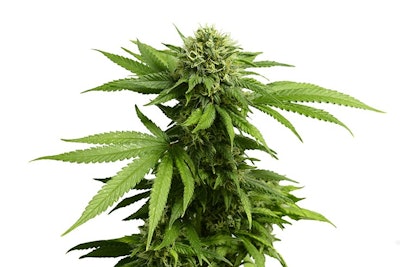
The year began with a thud. Now-former U.S. Attorney General Jeff Sessions announced on Jan. 4 that his U.S. Department of Justice (DOJ) would repeal the 2013 Cole Memo, a document that had de-prioritized cannabis-related prosecutions and essentially given states a framework with which to legalize and regulate a cannabis market. Uncertainty abounded.
“Attorney General Sessions has decided to use the power of the federal government to attack the ability of states to decide their own laws,” said Marijuana Policy Project (MPP) Interim Executive Director Matt Schweich in a statement at the time. “This decision may very well lead to federal agents raiding licensed, regulated, and tax-paying businesses—these businesses are employing thousands of Americans and generating hundreds of millions of dollars in tax revenue for public services including substance abuse treatment programs and new school construction.”
That didn’t happen. In fact, the Cole Memo repeal didn’t achieve much of anything that Sessions might have been planning, so embedded were the newly legal markets in states like Colorado, Washington and, as of Jan. 1 this year, California. The momentum was simply too great, and that confidence led to a very busy year of cannabis legislation, legalization and growing cultural acceptance.
Let’s roll the tape.
- Vermont legalized adult-use cannabis, becoming the first state to do by a legislative body. The state demurred, however, on the matter of taxed-and-regulated sales; even today, in December, the state is still only tepidly kicking around the idea of setting up a formal marketplace.
- Oklahoma, Missouri and Utah legalized medical marijuana. Oklahoma’s June election found deep support for cannabis reform in this traditionally conservative state. Missouri and Utah, also known for typically “red” politics, followed suit in November. Utah, however, has gone on to complicate the matter by superseding voters’ will and pushing a “compromise bill” in the state legislature. More to come on that.
- In September, the Commonwealth of the Northern Mariana Islands, a Republican-led U.S. territory, legalized adult-use cannabis.
- Michigan legalized adult-use cannabis in the November midterm election. This event marked the 10th U.S. state to legalize cannabis—and the first to do so in the Midwest. “Proposal 1’s passing in Michigan is a major domino for the cannabis movement and freedom in general," Jeffrey M. Zucker, President and Co-Founder of Green Lion Partners, told Cannabis Business Times. Michigan has the opportunity to set the example for the remainder of the Midwest while bringing in tremendous tax revenue for schools, governments and infrastructure. It wouldn’t be surprising to see nearby states like cash-strapped Illinois move this way in the near future.”
- U.S. Sen. Cory Gardner (R-CO) struck some sort of deal with President Trump. Gardner, who introduced the STATES Act, announced the end of a blockade on DOJ nominee hearings in return for some measure of support for cannabis reform from the president. Whether that takes the form of approval of the STATES Act is unclear, but Gardner has gone on to try and add that bill as an amendment to a broader piece of criminal justice legislation.
- The Marijuana Justice Act picked up support in the U.S. House and Senate. Introduced by U.S. Sen. Cory Booker (D-NJ) last year, the Marijuana Justice Act frames federal legalization as a criminal justice issue. As 2018 went on, a number of high-profile Democrats signed on as co-sponsors, many of them being frontrunners as possible 2020 presidential contenders.
- Canada legalized adult-use cannabis, with much of the country’s regulated marketplace opening for business on Oct. 17. In many ways, Canadian regulators will have an opportunity to play role models to the rest of the world. As cannabis legalization becomes more widely supported in an increasing number of countries, Canadian regulations on advertising or packaging, for example, can set the tone for future markets.
- Outside the U.S.: Of course, Canada was a major story this year. But other countries took great steps forward in cannabis reform. The UK, South Africa, South Korea, New Zealand, Georgia and Mexico each approved various bills aimed at decriminalization or outright legalization of medical cannabis or non-commercial adult-use cannabis.
- Sessions was forced to resign by Trump. "The resignation of Jeff Sessions marks another key turning point for the cannabis industry, removing a key obstructionist to cannabis reform from the Justice Department," said Frank Lane, president of CFN Media. "Many cannabis stocks have already surged following the news in hopes that the resignation will usher in a change to federal cannabis policy, including passage of the STATES Act. William Barr was nominated by Trump to succeed Sessions; his record in cannabis is unclear, but a long history of heavy-handed criminal prosecution follows him to Washington.
- The U.S. Congress approved the 2018 Farm Bill, which will legalize hemp cultivation. Since 2014, states had been permitted to operated hemp “pilot programs,” but this legislation will open the door to what Brightfield Group is predicting will be a $22-billion hemp-derived CBD market by 2022. The final votes came down just in the second week of December, and we’ll be tracking the implementation of hemp legalization in 2019 and beyond.
With a new year coming into focus, we’re already eagerly anticipating news coverage in New Jersey and New York, where cannabis legislation is moving fast. The hemp-derived CBD market will be a major story. And politicians, seeing growth in the many fragmented cannabis markets and eyeing significant election campaigns ahead of 2020, will no doubt engage the industry with more forward-thinking policy statements than before.
























